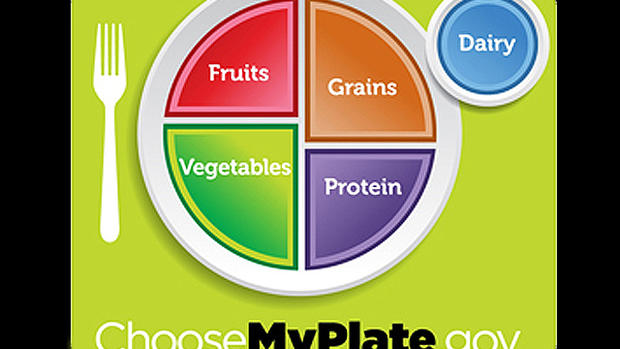Whole milk vs. skim: What's best for your diet?
A food fight is shaping up in Washington over what the federal government should -- and shouldn't -- be telling Americans about their diets.
Every five years, the USDA updates its official dietary guidelines to keep up with the latest science on healthy nutrition. The 2015 guidelines are expected to be published by the end of the year, and a draft of the updated recommendations has sparked controversy for clinging to dietary ideas that some experts say are not supported by recent research and may even be counterproductive.
Milk, in particular, is becoming a focus of debate.
The dietary guidelines have long recommended low-fat or non-fat milk over whole milk, which is higher in saturated fats, and the latest draft sticks with that advice.
"The U.S. population should be encouraged and guided to consume dietary patterns that are rich in vegetables, fruit, whole grains, seafood, legumes, and nuts; [and] moderate in low- and non-fat dairy products," the document states. "Care should be taken to minimize the amount of calories from added sugars and high-fat dairy."
But as the Washington Post recently pointed out, a growing body of scientific evidence contradicts the conventional wisdom on milk and dairy products. An analysis published in the European Journal of Nutrition found people who drink whole milk tend to weigh less and have lower rates of obesity than those who opt for low-fat or skim.
"There's a lot of emerging research right now about full-fat dairy versus low-fat or non-fat dairy," Despina Hyde, a registered dietician at NYU's Langone Weight Management program, told CBS News.
"What we do know is that fat is not the enemy. Fat is good for us. It provides satiety, that feeling of fullness. It helps us to absorb fat-soluble vitamins. So it's good for us for several reasons. However, the fat that's found in dairy is saturated fat, which may not be the best fat out there. There's other, healthier fats like monounsaturated, polyunsaturated, omega 3s," she said.
Monounsaturated fats are the type found in olive oil and nuts, polyunsaturated fats are found in many vegetable oils, while some fish are a good source of omega 3s.
"Having fat in dairy is one piece of the whole nutrition puzzle," Hyde said. "So we have to look at, what else are these people eating? What is the entire picture?"
Getting the federal dietary recommendations right is important, argues Nina Teicholz, a critic of traditional low-fat diet advice and author of "The Big Fat Surprise: Why Butter, Meat and Cheese Belong in a Healthy Diet."
"This is the most important set of guidelines in the world and they need to be based on really solid evidence," Teicholz told CBS News.
Teicholz published an article in the medical journal The BMJ last month arguing that the federal panel's recommendations were not based on a rigorous analysis of the latest science.
"Why have the dietary guidelines not successfully combated the major epidemics of our time?" Teicholz said. "The obesity epidemic began in the 1980s when the dietary guidelines started."
Among other things, the guidelines are used to help shape school lunch programs and other federal food policies, although they are not mandates.
"It could affect what your kids are seeing on their plate in the cafeteria -- or it may not," Hyde said.
At a House Agriculture Committee hearing Wednesday, Agriculture Secretary Tom Vilsack and Health and Human Services Secretary Sylvia Burwell said the updated guidelines will serve a valuable purpose in helping Americans make better food choices.
The recommendations will focus on the benefits of eating "fruits and vegetables, grains and lean proteins and limited amounts of saturated fats, added sugar and sodium," Burwell told the committee.
But some members of Congress were fed up with hearing conflicting advice about diet and health. "From my constituents, most of them don't believe this stuff anymore. You have lost your credibility with a lot of people," said Rep. Collin Peterson, D-Minnesota.
Bianca Seidman contributed reporting.
